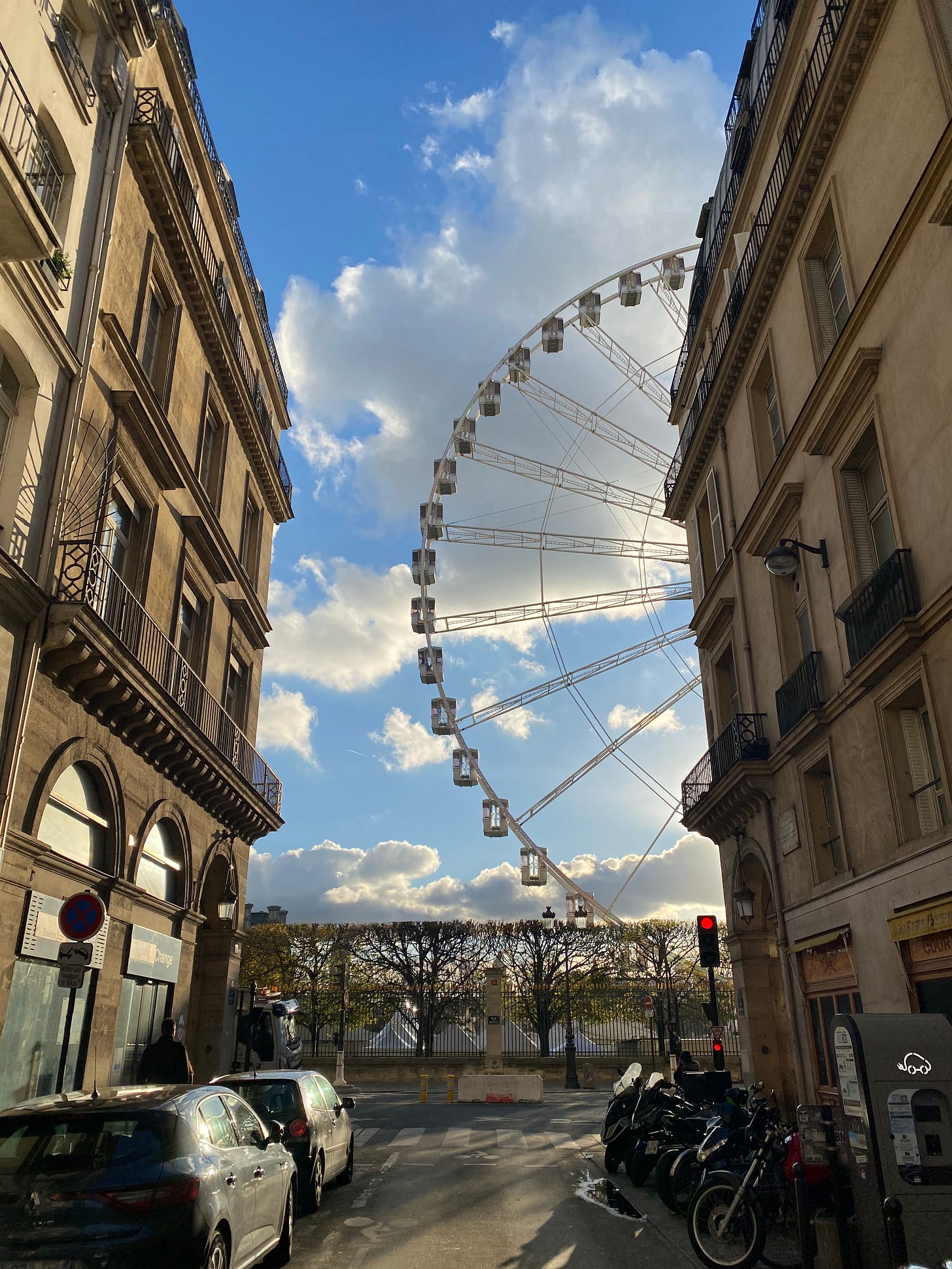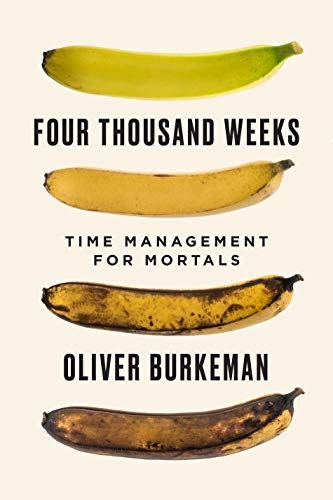Mastery with bestseller author Robert Greene 📚- Cultivating Flow ⛷- Buying books from Apple vs Amazon 🥇- Bullshit vs neuroscience 💩 - Pro tips in time management ⏱
Flow is not a state, it is a way to learn continuously
Hi there 😊,
Episode #39. Last week's interview format has truly been a hit featuring the one and only Max Nussenbaum, a key team leader at On Deck - a US startup company specializing in cohort-based learning- and author of the newsletter My Super Secret Diary. We are back to the takeaways format for this weeks’ episode, we hope you will learn a ton from those summaries. Give yourself some time to reflect and grow, it is just a few minutes of flow 👇
#1 Mastery 🎯
From A conversation with Robert Greene on Power, Mastery, Purpose, Success & Understanding Human Nature in Though Economics November 10, 2021. Curated by my dear friend Patrick Kervern who knows I am a fan after I had the chance to meet and talk with Robert Greene in Paris when he was releasing The law of Human Nature 🙏
True mastery? Mastery in the sense we can define- mastery over ourselves and our emotions… mastery over our self-awareness, over what makes us individuals, over our skills. At some point, these things become automatic, you don’t have to think. You start to operate at a very high, intuitive, level. These ideas are coming to you out of nowhere.
Truly understanding yourself?
Understanding who you are on a very profound level. What makes you tick? What makes you different? Who were you as a child? What are your interests? What makes you different from everyone else? This understanding gives you a sense of destiny, your career path, and life’s path.
We are emotional animals?
We are emotional animals and need to think more about the emotions involved in our life. When you love what you do, when you’re excited about your field when you’ve chosen a path that connects with you personally- you will learn fast, you will accomplish in 5 years what it would take others 15 years to do.
The Polymath Era: “Polymaths are individuals who understand many different fields, Leonardo Da Vinci is the icon of that. He was a brilliant artist, an accomplished scientist, and a visionary inventor. Benjamin Franklin is another icon and polymath. Steve Jobs is a more modern example. His interest was in technology, but he was also obsessed with design, aesthetics, and beauty. He combined technology and design to create something on a much higher level.”...Those who study philosophy, the arts, and sciences together can make connections at that very high level because they see knowledge, as a whole, not as compartments.
Be aware of the dark side of human nature :
I came upon 18 patterns that define our behavior and a lot of them are negative and deal with our propensity to be irrational, self-absorbed, narcissistic, grandiose, envious, aggressive, and passive-aggressive. These are traits we all have, and our relation to them defines us, but the number one thing I’ve discovered is that people deny that they have any of these traits. But we should not deny your shadow, your darkest impulses, but find ways to use them and turn them into something productive.
If you don’t understand who you are? You’re navigating in the dark.
Fulfillment VS Success
There is no cookie-cutter formula for success; it sometimes feels as if everybody is searching for a formula, an algorithm that they can apply to succeed. It doesn’t work like that. My idea of success and mastery is achieving a feeling of fulfillment.
#2 Cultivating flow 🌊
From Cultivating Flow episode in the newsletter called Superorganizers published on November 9, 2021.
Flow is not only a state, it is a way to learn continuously.
Self-consciousness disappears when you enter a state of flow.
Flow appears when you are focused on competing (mentally or physically), when you are all into resolving one problem or when you are enjoying bonding activities with friends or family.
Anybody can get into a state of flow; one just needs the skills and a goal.
Flow helps resolve the problem of dissatisfaction, it will help you reach fulfillment.
From a study covered in this article, states of flow appear more at work than at leisure.
Flow does not make us happier, it changes us to make us better.
The more one experiences flow, the more one cultivates consciousness.
Complex selves are a combination of differentiation (being alone) and integration (being well in a group).
Creating flow comes rather from a mindset than from external factors.
The key question then is: how can we spend more of our time in a state of flow?
By having clear goals, challenging enough, get regular feedback and freedom to focus.
Flow vs getting bored at work « Reminding oneself of the importance of a flow mindset is an important safeguard against job dissatisfaction. »
#3 Book battle 📚
From The Amazon-Apple Book Duopoly episode in the newsletter called Sunday Snapshots published on June 7, 2021. Curated by the Customer Experience guru, Aurore Lanchart.
Book sales totaled around $1B in the U.S. with roughly an 80/20 split between physical books and ebooks. According to some estimates, Amazon owns up to 70-80% of this $1B pie.
Publishers were handed a lifesaver by Apple’s iBookstore, where they were allowed to price books however they wanted and give Apple a 30% cut.
So how do we break this duopolistic structure? Write online, publish on Genre-specific mediums.
#4 Bullshit vs Neuroscience 🇫🇷
From the French GDIY podcast by Matt Stefani with special guest Albert Moukheiber, docteur en neurosciences, Apprendre à Désapprendre published on November 14, 2021.
Le toutologue est celui qui donne une opinion en public sur tout sans avoir vraiment l’expertise.
Sans expertise il est parfois utile de dire que nous n’avons pas d’opinion. C’est ok d'être un mouton quand on fait confiance au berger.
Le “bullshit pseudo profond” est un notion sérieuse qui qualifie des affirmations fausses qui ont l’air d'être crédibles.
#5 Time Management ⏱
From Four Thousand Weeks: Time Management for Mortals published in Next Big Idea Club on September 17, 2021. Curated by Patrick Kervern about this book by Oliver Burkeman. Oliver is is an author and journalist. For many years, he wrote a weekly psychology column for The Guardian called “This Column Will Change Your Life.”
1. There will always be too much to do. “We live in a world of infinite inputs, so there’s no limit to the number of emails you could receive or demands your boss could make. By the same token, there’s no limit to the number of exotic travel destinations you wish to visit or business ideas you might launch...So there’s a mismatch between the infinite inputs and our very finite capacities.
2. Distraction is an inside job. "We like to criticize Silicon Valley for creating diabolical social media platforms and devices that steal our attention from what we really care about and ought to focus on"..." But there’s another side to this story. It’s what poet Mary Oliver once called the “intimate interrupter.” The call to distraction is coming from inside the house. We feel an inner urge to distract ourselves from whatever we really care about."
3. Patience is a superpower. It’s basically the most boring virtue in the world. “It’s about moving through the world with curiosity about what will happen next, instead of a demand that it turns out according to your plans.”
4. A plan is just a thought. We struggle to feel in control over our time because we try to find a feeling of certainty about the future, when (by definition) we are never going to attain that certainty…” We go wrong, psychologically speaking when we treat that plan as an attempt to feel certain about the future from the vantage point of the present. We forget, to quote the meditation teacher Joseph Goldstein, that a plan is just a thought.
5. You’re not such a big deal. Many of us go through life agonizing about the various decisions we have to make, and it can be a huge relief to realize that on a cosmic level, the stakes aren’t that high. If you’re scared about launching a creative project or reaching out to someone, you might as well do it, because it doesn’t matter much, on a cosmic level, if it goes wrong.
You noticed that this newsletter is mostly free. You can make us super happy just by sharing it with your teammates, friends, or family relatives.
See you next Sunday!







